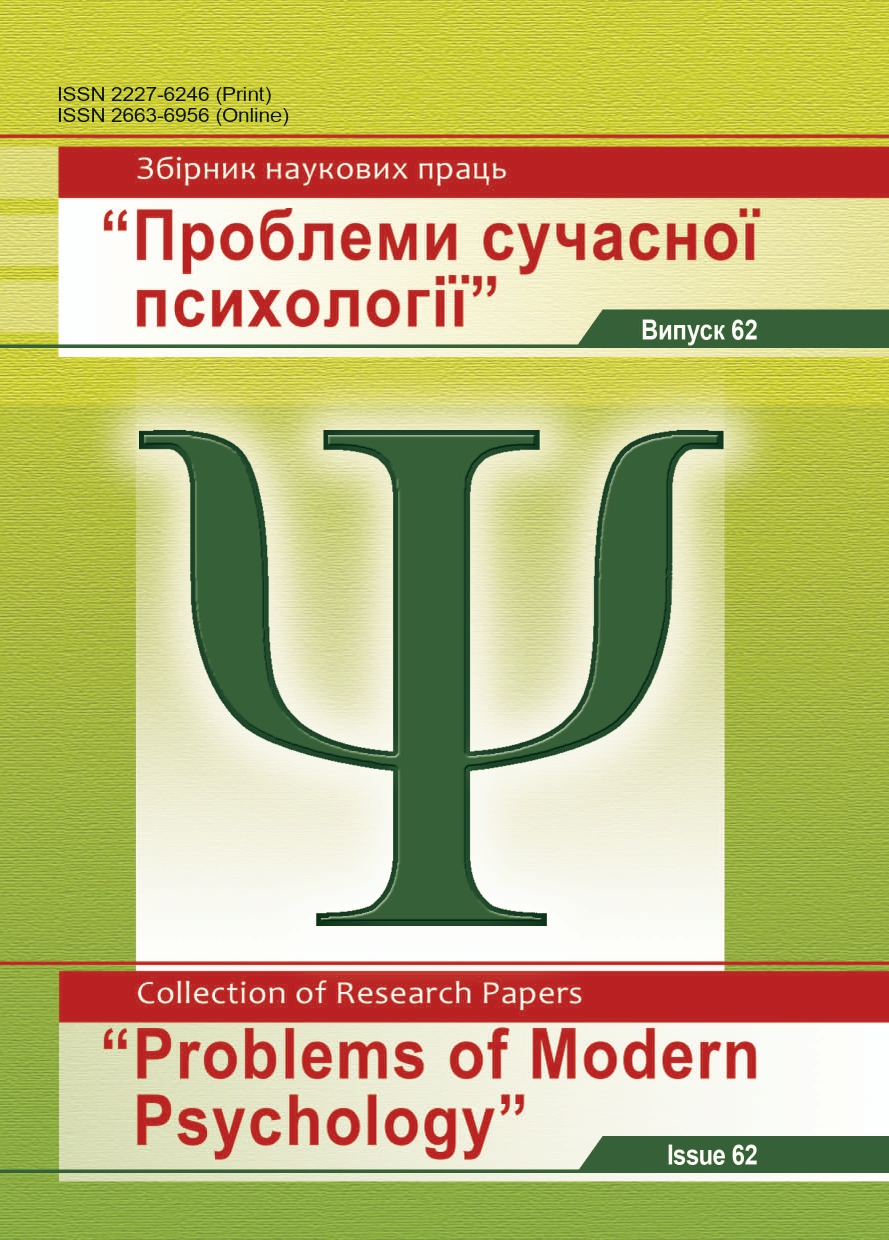The Professional Activity of the Head of the Educational Institution as a Sphere of Formation of his/her Professional Creativity
DOI:
https://doi.org/10.32626/2227-6246.2023-62.148-165Keywords:
professional activity, professional creativity, subject-specific knowledge, unique rational solutions, creative problem tasksAbstract
The aim of our research is to show the professional activity of the head of the educational institution as a sphere of formation of his/her professional creativity.
Methods of the research. The following theoretical methods of the research were used to solve the tasks formulated in the article: a categorical method, structural and functional methods, the methods of the analysis, systematization, modeling and generalization.
The results of the research. We believe that the professional creativity of a manager is a process of carrying out creative activity, because it is professional creativity aimed at solving tasks that are characterized by the absence of a solution method in a given subject area, or the absence of such a method in a given management subject. The latter can be explained by the lack of subjectspecific knowledge necessary for a specialist to solve this problem. In the process of implementing professional creativity, the manager becomes aware of new knowledge for him/her as a kind of indicative basis for further development of a method of solving managerial and professional problems and tasks. In professional creativity, at first, the manager is in some uncertainty: there is no clearly formed opportunity to develop new subjects of professional activity and, on their basis, to invent a way to solve the task; this kind of uncertainty is due to the absence of any other knowledge that will clearly determine the development in asking questions.
Conclusions. The practice of the manager’s creative professional activity, its reflection in theoretical studies, allows us to conclude that professional creativity is a specific activity, which is characterized by a professional direction with the aim of finding new, non-standard, original and unique rational solutions, which facilitate a new solution to use creative problem tasks by individual tasks in the professional activity and their implementation into practice.
Downloads
Published
How to Cite
Issue
Section
License
Copyright (c) 2023 Nabochuk Alexander

This work is licensed under a Creative Commons Attribution-NonCommercial 4.0 International License.
Copyright
The Editorial Board has the full right to publish original scientific papers containing results of theoretical and experimental research works which are not currently subject to review for publication in other scientific editions. The Author shall transfer to the editorial board of the Collection the right to spread the electronic version of the paper, as well as the electronic version of the paper translated into English (for papers originally submitted in Ukrainian and Russian) by all kinds of electronic means (placement at the official website of the Collection, electronic databases, repositories etc).
The Author of an article reserves the right to use materials of the paper, without approval with the editorial board and the founders of this Collection: a) partially or fully, for educational purposes; b) for writing own dissertation papers; c) for preparation of abstracts, conference reports and presentations.
The Author of an article can place electronic copies of the paper (including the final electronic version downloaded from the official website of the Collection) at:
- personal web resources of all Authors (websites, webpages, blogs etc.);
- web resources of the institutions where the Authors are employed (including electronic institutional repositories);
- non-profit public access web resources (for example, arXiv.org).
But in all cases, it is obligatory to have a bibliographic reference to the paper, or a hyperlink to its electronic copy placed at the official website of this Collection.






